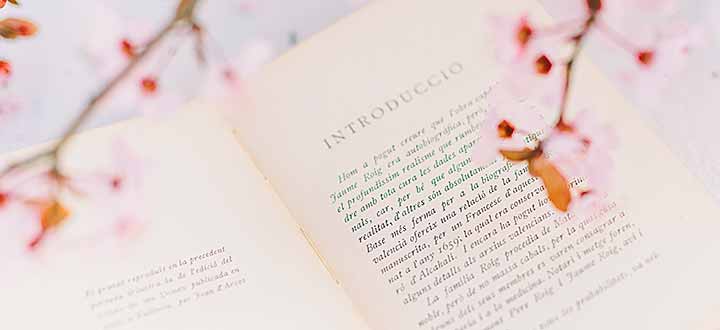清明节的由来英语作文(精选19篇)
2024-04-12 17:33:58 学考宝 作者:佚名
清明节是一个传统的节日,大家了解过这个节日的来源吗?知道怎么样用英语介绍这个节日吗?以下是小编整理好的清明节的由来英语作文,欢迎大家阅读参考!

清明节的由来英语作文(精选19篇) 第一篇
The traditional Tomb-sweeping Day of the Han Chinese began around the Zhou Dynasty, which has a history of more than 2,500 years. Influenced by Han culture, China's Manchu, Hezhen, Zhuang, Oroqen, Dong, Tujia, Miao, Yao, Li, Shui, Jing, Qiang and other 24 ethnic minorities, also have the custom of Qingming Festival. Tomb sweeping, ancestor worship, outing is the basic theme.
Our country folk to keep for a long time the habit of clear outing. Qingming is usually around the third lunar month, which is the time of spring on the earth.
After a long winter, people get out of their homes and go outdoors to explore the smell of spring -- or in the fields, or in the suburbs, these outings are called "outing." Spring outing, also called spring outing. In ancient times, it was called Tanchun, Hunchun, etc.
Legend, in a long time ago there was Qingming outing this activity. According to the "old book of Tang" records: "Dali two February Renwu, lucky Kunming pool outing." Visible, spring outing custom has long been popular. Du Fu has "the river outing, looking back to see the flag" poem. In the Song Dynasty, the wind of spring outing prevailed. The genre painting Along the River at Qingming Festival by Song Dynasty painter Zhang Zeduan vividly depicts the bustling scene of Qingming Festival centered on the Bianhe River outside the capital Bianjing.
Since spring comes at different times all over the country, the Spring Outing Festival comes first and then. The second day of the second lunar month is the Spring Outing Festival in Fujian and the third day of the third lunar month is the Spring Outing Festival in Shaanxi. Beijing, the northeast because of the spring is particularly late, to the fifth day of May began to spring outing. Since spring outing is a meaningful custom, it is passed down from generation to generation.
清明节的由来英语作文(精选19篇) 第二篇
Long long ago, during the Spring and Autumn Period and the Warring States Period, there was a king in the State of Qi named Huan Gong. He also has a lovely name, called Jiang Xiaobai. I remember the name like this: Jiang is Jiang Xiaoya's Jiang, and Xiao Bai is Lady White in my favorite cartoon The Legend of the White Snake. Once, when he was not king and was wandering about, he had no food to eat and was dying of hunger. One of his loyal ministers, Jie Zitui, cut off a piece of his own leg and offered it to him to eat. He was so moved by the incident that he said he would always remember that Jie Zitui helped him.
However, when he became king, he was so busy with so many things that he forgot Jie Zi. Jie Zitui was very sad and ran to hide in the mountains. At this time, Jiang Xiaobai remembered that he forgot to be grateful to Jie Zitui. So he asked the minister to look for Muon Zitui, but the ministers looked for a long time did not find muon Zitui. At that moment, one of the ministers had an idea. He said to light a fire and smoke him out.
Jiang Xiaobai heard his way, and really lit a fire in the mountains. But accidentally the fire is too big, actually pushed the muon to burn. Jiang Xiaobai was very sad, very lost, but also very regret. He decided to have people hold their guns and eat raw food on this day to honor Jie Zitui. Then people put the day on the back of the day as the Qingming Festival.
This story tells us that if someone helps you, you must always remember him. If you like someone, you can't force him to do something he doesn't like.
清明节的由来英语作文(精选19篇) 第三篇
Tomb-sweeping Day, is the most grand festival of ancestor worship in the Chinese nation, which belongs to a cultural traditional festival of honoring ancestors, being prudent and carrying forward filial piety. Qingming Festival has a long history. It originated from the Spring Festival Festival and the Spring and Autumn Festival Festival in ancient times. Ancestor belief and sacrificial culture are important factors in the formation of Qingming Festival. Qingming contains both solar terms and festivals. It provides important conditions for the formation of Qingming custom in terms of time and meteorological phenology.
The Qingming Solar term is one of the 24 specific seasons in the ancient Ganzhi calendar. It is a time when vitality is strong, but also a time when Yin qi declines. The Qingming Festival is a good time for outdoor outing (spring outing) and Qingming (tomb sacrifices). The temperature rises and everything is clean. Tomb-sweeping Day will be solar terms and folk customs into one, is the combination of the right time and place and people.
The Qingming ritual and custom culture fully embodies the Chinese nation's ancestors' pursuit of the harmony of "heaven, earth and man" and the thought of conforming to the conditions of heaven and earth and following the laws of nature. Tomb-sweeping Day is not only a solemn day to sweep tombs and worship ancestors, but also a joyous festival for people to get close to nature, go for an outing and enjoy the fun of spring. After the historical development and evolution, Qingming Festival absorbs and integrates the customs of Cold Food Festival and Shangsi Festival, a variety of folk customs as a whole, with a very rich cultural connotation.
清明节的由来英语作文(精选19篇) 第四篇
The tomb sweeping day is one of the traditional festivals in China. On April 5th, people start to visit their ancestors’ tombs. Generally speaking, people will bring the home-made food, some fake money and paper-made mansion to their ancestors. When they start to honour their ancestor, they will light up some candles and incense, put some flowers around the tombs. The most important thing is to put the home-made food in front of the tombs. The food, also known as sacrifices, is usually made up with a chicken, a fish and some pork. It’s a symbol of the offspring’s respect to the ancestors. People believe that the forbears will share the food with them. The children dedicate the food and money to their forbears in order to show their love and caring. The young offspring will go down on their knees and pray for their ancestors. They can say their wishes in front of the tombs and the ancestors will make their dreams come true.
In some provinces of China, people use different activities to commemorate this day, for instance, spring-outing, swinging, tree planting and making special food. One special food is Ay Tsao rice balls. It looks like Tang-yuan, but its colour is green. Mix the ay tsao juice with the rice powder, then make it into small balls. The Ay Tsao rice ball is done. People believe that eating ay tsao rice balls can get rid of the bad luck and everything will go smoothly. Other activities such as spring outing, tree planting are the other ways to commemorate the forbears. For one thing, it is a sign that people should look into the future and embrace the hope; for another thing, we do hope our ancestor rest in peace.
清明节的由来英语作文(精选19篇) 第五篇
Do you know where Qingming Festival comes from? China's traditional Qingming Festival began around the Zhou Dynasty, has a history of more than two thousand years. Tomb-sweeping Day at the beginning of a very important solar term, Tomb-sweeping day arrives, the temperature rises, it is a good time for spring tillage, so there is "Tomb-sweeping Day before and after. Plant melons and beans. Afforestation, Mo Qingming "nongyan.
And then. Since the Qingming Festival is close to the cold day, and the cold food is the day when the folk forbid fire to sweep the tombs, the cold food and the Qingming Festival gradually became one, and the cold food became another name for the Qingming Festival. It has also become a custom for Tomb-sweeping Day. Tomb-sweeping day does not move fireworks, only eat cold food.
Another custom of Tomb-sweeping Day is to sweep the tombs. This year around the Qingming Festival, our school organized a spring outing, is to go to the monument of revolutionary heroes. We took the sun hat, holding the small white flowers, with great strength and strength to the monument to the revolutionary heroes, there, there are many tall stone tablets, stone tablets have a lot of martyrs' names in the above, we bowed our heads, came to the Changqing tree in front of our small white flowers sent in the Changqing tree, silently looking at the small white flowers on the Changqing tree... Reluctant to part after leaving the monument of revolutionary heroes.
This is our memorial to the deceased ancestors of the festival, but also our Chinese very traditional festival Qingming Festival!
清明节的由来英语作文(精选19篇) 第六篇
Qingming Festival, also known as Pure Brightness Festival or Tomb-sweeping Day, is one of the 24 segments of the Chinese calendar. It normally falls on the 4th or 5th of April, between spring plowing and summer weeding, and is a time to pay respects to one's ancestors and to tidy their gravesite. On this day, whole families, young and old, go to the gravesite of deceased family members to burn incense and perform a ritual offering while clearing away plant overgrowth from the gravesite.
Qingming Festival is when Chinese people visit the graves or burial grounds of their ancestors. Traditionally, people brought a whole rooster with them to the graves visited but the occasion has become less formal over time.
The festival originated from Hanshi Day (寒食节, literally, Day with cold food only), a memorial day for Jie Zitui (介子推). Jie Zitui died in 636 BC in the Spring and Autumn Period.
He was one of many followers of Duke Wen of Jin before he became a duke. Once, during Wen's 19 years of exile, they had no food and Jie prepared some meat soup for Wen. Wen enjoyed it a lot and wondered where Jie had obtained the soup. It turned out Jie had cut a piece of meat from his own thigh to make the soup.
Wen was so moved he promised to reward him one day. However, Jie was not the type of person who sought rewards. Instead, he just wanted to help Wen to return to Jin to become king. Once Wen became duke, Jie resigned and stayed away from him. Duke Wen rewarded the people who helped him in the decades, but for some reason he forgot to reward Jie, who by then had moved into the forest with his mother.
Duke Wen went to the forest, but could not find Jie. Heeding suggestions from his officials, Duke Wen ordered men to set the forest on fire to force out Jie. However, Jie died in the fire. Feeling remorseful, Duke Wen ordered three days without fire to honour Jie's memory. The county where Jie died is still called Jiexiu (介休, literally "the place Jie rests forever").
清明节的由来英语作文(精选19篇) 第七篇
Qingming Festival is one of our traditional festivals. Are you curious about Qingming Festival? You want to know where it came from? Why is it called Qingming Festival? Let me introduce you to you.
Spring and Autumn. In order to escape persecution, childe Chonger of the Jin Dynasty left the king abroad. On the way, he found himself in an uninhabited place. He was tired and hungry, and had no physical strength. With the minister looking for a long time also can not find food, when we are anxious, with Jie Zitui quietly cut a piece of meat to Chonger made broth. After hearing this, Chong Er was very grateful. Later, Chong Er returned to China to be the king and rewarded those who had been exiled with him, but he forgot Jie Zitui. Later, he wanted to give Jie a reward, but Jie Zitui despised competing for rewards, so he packed his luggage and went to Mian Mountain with his mother to live in seclusion.
Ashamed of himself, Duke Wen of Jin wanted to find Jie Zitui, but the mountain was huge. Where should he find it? Some people suggest using torches to force Muon push down the cotton mountain. Chonger agreed. As a result, the meson was still delayed. Chonger ordered someone to go up and see that Jie Zitui had died under the willow tree, carrying his old mother. Chonger was so remorseful that he wrote a letter in blood and hung it under a willow tree.
Qingming Festival is a sad festival. Also known as the Cold Food Festival, Qingming Festival is a festival made by the Duke of Jin Wen Chonger to follow his minister Jie Zi push Pu mourning.
清明节的由来英语作文(精选19篇) 第八篇
Speaking of Qingming Festival, people with some historical knowledge will be associated with the historical figure of Jie Zitui. According to historical records, during the Spring and Autumn Period more than 2,000 years ago, the Prince Chonger of the State of Jin lived a hard life on the run. Jie Zitui, who followed him, was willing to cut a piece of meat from his own leg to satisfy his hunger. Later, Chong Er returned to the state of Jin and became the king (Lord Wen of Jin, one of the five rulers in the Spring and Autumn Period). He rewarded all his followers who had followed him in exile, but Jie Zitui refused to accept the award. He took his mother and lived in seclude in Mianshan, refusing to come out.
Duke Wen of Jin had no choice but to set fire to the mountain. He thought that Jie Zitui, who was filial to his mother, would surely come out with her. Who knows the fire but the mother and son of Jie Zitui burned to death. In honor of Jie Zitui, Duke Wen of Jin ordered that no fires should be lit on this day every year, and every household could only eat cold and raw food. This is the origin of the Cold Food Festival.
The Cold Food Festival falls on the day before Tomb-Sweeping Day. Ancient people often extended the activities of the Cold Food Festival to Tomb-sweeping Day. Over time, people would combine the cold food with Tomb-sweeping Day. Now, the Qingming Festival has replaced the Cold Food Festival, and the custom of worshiping Jie Zitui has become the custom of sweeping tombs during the Qingming Festival.
清明节的由来英语作文(精选19篇) 第九篇
Tomb-sweeping Day falls on the Gregorian calendar from 04-06. The tomb-sweeping day is usually 10 days before to 10 days after the tomb-sweeping Day, and in some places it lasts as long as a month. Tomb-sweeping Day is one of the eight important festivals in China. As a festival, Qingming is different from the pure solar term. The solar term is the symbol of the change of phenology and the order of seasons, while the festival contains the connotation of spiritual belief and festival customs and etiquette. According to the research results of modern anthropology and archaeology, the two most primitive beliefs of human beings are the belief in heaven and earth and the belief in ancestors. Since ancient times, the traditional culture and customs of worshiping the gods have been passed down from generation to generation, and the custom of sweeping tombs during the Qingming Festival has become a fixed ritual theme.
Although the custom of banning fire and cold food during the Qingming Festival was not integrated and popularized until the Song Dynasty, the custom of sweeping tombs and paying respects to ancestors on the Qingming Festival has long existed. In addition to spring outing and tomb sweeping, the custom of Tomb-sweeping Day has absorbed a series of custom sports activities such as swinging, Cuju, playing polo and ing willow in its historical development. Tomb-sweeping day the traditional festival custom of ancestor worship continues since ancient times, is to today's society, people around the tomb-sweeping Day still have the custom of tomb sweeping ancestor worship: uprooting weeds, put on offerings, incense in front of the tomb prayer, burning paper money and gold ingots, or simply offer a bunch of flowers, in order to express the memory of the ancestors. Qingming Festival embodies the national spirit, inherits the sacrificial culture of the Chinese civilization, and expresses people's moral feelings of respecting their ancestors and following their aspirations.
清明节的由来英语作文(精选19篇) 第十篇
Qingming Festival is an important traditional Chinese folk festival, is an important "eight festivals" (Shangyuan, Qingming, the beginning of summer, the Dragon Boat Festival, the middle Yuan, the Mid-Autumn Festival, the winter solstice and New Year's Eve). The Tomb-sweeping Day generally falls on April 5 in the Gregorian calendar, but its festival period is very long. There are two versions of it: ten days before, eight days after and ten days after.
The origin of Tomb-sweeping Day, it is said that the ancient emperors and generals "tomb offering" ceremony, later the folk also followed, on this day to worship the ancestors and sweep the tombs, successive generations and become a fixed custom of the Chinese nation. Originally, the Cold Food Festival and Tomb-sweeping Day were two different festivals. In the Tang Dynasty, the day of worship and tomb sweeping was designated as the Cold Food Festival. The correct date of the Cold Food Festival is 105 days after the winter solstice, around the Qingming Festival, because the two days are close, so Qingming Festival and Cold food combined into one day.
Tomb-sweeping Day customs, pay attention to fire, tomb sweeping, as well as outing, swinging, Cuju, playing polo, ed willow.
This is the origin and custom of Qingming Festival.
清明节的由来英语作文(精选19篇) 第十一篇
Today is Qingming Festival. Qingming Festival is also one of the 24 solar terms in China. It is a traditional festival and the most important festival for sacrifice. It is a time for ancestor worship and tomb sweeping. Our Qingming Festival began about the Zhou Dynasty, has a history of more than two thousand five hundred years. Tomb-sweeping Day is a very important solar term at the beginning, Tomb-sweeping day, the temperature rises, it is a good time for spring planting, so there is "before and after Tomb-sweeping day, planting melons and beans" "afforestation, Mo Qingming" nongyan.
Later, as the day of Qingming is close to the day of Cold food, which is the day when people forbid fire to sweep tombs, the two days gradually became one, and the cold food became not only another name for Qingming, but also a custom of the Qingming Festival. On Qingming Day, there is no fireworks and only cold food is eaten.
The name also derives from the Qingming Festival, one of the 24 solar terms in the Chinese lunar calendar. The 105th day after the winter solstice is the Qingming Solar Term. The Qingming Festival has 15 days. As a solar term, Qingming comes after the Spring Equinox. Winter was now gone, spring was in full swing, the weather was clear, the fields were clear, and nature was full of vitality. "Qingming" is the most appropriate word to call this period.
清明节的由来英语作文(精选19篇) 第十二篇
Qingming is one of the twenty-four solar terms in China. Because the 24 solar terms objectively reflect the four seasons of temperature, rainfall, phenology and other aspects of change, so the ancient working people use it to arrange agricultural activities, Chinese traditional Qingming Festival began about the Zhou Dynasty, has a history of more than 2,500 years. Tomb-sweeping Day is a very important solar term at the beginning, when Tomb-sweeping Day arrives, the temperature rises, it is a good time for spring ploughing and spring planting, so there is "before and after Tomb-sweeping Day, planting melons and beans". "Afforestation, Mo Qingming" nongyan. Qingming Festival is a traditional Chinese festival, is also the most important sacrifice festival, is the day of ancestor worship and tomb sweeping. Tomb sweeping commonly known as Shangfen, sacrificial dead a kind of activity.
The Han and some minority ethnic groups mostly sweep tombs on Tomb-sweeping Day. According to the old custom, when the tomb, people to carry wine, fruit, paper money and other items to the cemetery, the food for sacrifice in front of the grave, and then the paper money incinerated, for the grave on the new soil, fold a few branches of fresh green branches ed in the grave, and then kowtow worship, finally eat wine and food home. Tang Dynasty poet Du Mu poem "Qingming Festival" : "Qingming Festival season rain, the road pedestrians want to break the soul. Excuse me, where is the restaurant? The shepherd boy points to apricot flower village." Write the Tomb-sweeping day special atmosphere.
Tomb-sweeping Day, also known as Taqing Festival, according to the Gregorian calendar, it is between April 4 and 6 each year, it is the spring bright vegetation green season, it is also people spring outing (ancient called outing) good time, so the ancients have Qingming outing, and carry out a series of sports activities customs.
清明节的由来英语作文(精选19篇) 第十三篇
Friends, do you know the origin of Qingming? If you don't know, let me tell you about it.
One day, when Chong Er was still the emperor's son, he fled with Jie Zidi. Chong Er and Jie Zitui could not find food, and Chong Er almost starved to death. Jie Zitui cut off a piece of his own meat and gave it to Chong Er. Chong Er said, "In the future, if I become king, I will repay you!" Later, when Chong Er really became king, he wanted to give a reward to those who helped him. Someone reminded him: "You forgot to give Jie Zitui a reward." Chong Er hurriedly called someone to give Jie Zitui a gift. However, Jie Zitui refused. So Chonger decided to set fire to Muon push force out of the mountain, can fire for a long time Muon push still did not come out, Chonger hurriedly called someone to put out or out, to find their own. By the time Chonger found Jie Zitui, Jie Zitui was dead. In order to commemorate Jie Zitui, we put the day Jie Zitui died, April 4, called Qingming Festival. So, every April 5, we honor our ancestors.
This year we also went to visit the grave. On the mountain, we saw many strange and beautiful flowers which we had never seen before. Oh, I forgot to say, we sweep the tomb is my grandmother's tomb, where my grandfather to burn paper money, such as paper money burned well, we will go to hang flowers, hang flowers we will finish the tomb.
清明节的由来英语作文(精选19篇) 第十四篇
Tomb-sweeping Day is one of the traditional and important festivals in China. During this season, many people visit tombs and go out for an outing. I believe that many people do not understand the origin of Qingming Festival is what, the following to share with you the origin of Qingming Festival.
Nineteen years later, Chong Er became the king of the state, also known as Duke Wen of Jin in history. After the throne, Duke Wen rewarded those who had accompanied him in exile, but forgot Jie Zitui. Many people complained for Jie Zitui and advised him to ask for rewards, but Jie Zitui most despised those who fought for rewards. He packed up and quietly went to the cotton Mountain to live in seclusion.
After hearing this, Wen Gong of Jin was ashamed and took someone to invite Jie Zitui personally. However, Jie Zitui had left home and gone to Mian Mountain. Mianshan mountain high road risk, thick trees, it is not easy to find two people, someone offered advice, from three sides of the fire Mianshan, forced out Muon push. The fire burned all over the Mian Mountain, but did not see the figure of Jie Zitui, after the fire was extinguished, people found that the Jie Zitui carrying the old mother has been sitting under an old willow tree died. Seeing this, Lord Wen of Jin wailed. When he was laid out, he found one in the hole of a tree. It was written on it: "Cut your flesh and give you your heart. I hope the Lord will always be clear and bright."
In order to commemorate Jie Zitui, Duke Wen of Jin ordered this day every year as Qingming Festival. Fire was forbidden on this day, and every family could only eat cold food. This is the origin of the Cold Food Festival, which is also the origin of Qingming Festival.
清明节的由来英语作文(精选19篇) 第十五篇
"Tomb-sweeping Day rain, pedestrians on the road to the soul", Tomb-sweeping day is coming, the weather is gradually getting hot. What did everyone do before and after the Qingming Festival?
Tomb-sweeping day, also known as Taqing Festival, is the 108th day after the winter solstice, so the Tomb-sweeping day is different every year. To say this Qingming Festival, there is a small story behind it.
According to legend, during the Spring and Autumn Period (770-476 B.C.), the Prince Chonger of the Jin Dynasty was in exile to escape persecution. On his way, he could no longer stand up in a deserted place. Jie Zitui went to a quiet place, cut a piece of meat off his thigh, cooked a bowl of soup and offered it to Chong Er. Chong Er gradually recovered his spirit and found out that Jie Zitui had cut the meat off his leg, leaving tears in his eyes.
Nineteen years later, Chong Er became the king. After he ascended the throne, he rewarded those who had accompanied him in exile, except for Jie Zitui. Many people complained for Jie Zitui and advised him to beg for a reward, but Jie Zitui did not agree and went to the Mian mountains.
Heavy ear after hearing, very ashamed, take someone to ask Jie Zitui. But where can I find it? Then someone came up with a plan to burn Mianshan from Sanming and force Jie Zitui out. Fire all over the cotton Mountain, but did not see Jie Zitui, later found him under an old willow tree, he carried his old mother has died. The heavy ear sees the pain. When he was buried, he found a letter in blood in the hollow of the tree. It read: "Cut the flesh and serve the army with your heart. I hope the Lord will always be clear and bright." In order to commemorate Jie Zitui, Chong Er ordered the day as the Cold Food Festival.
The next year, Chong Er led his ministers to climb the mountain to pay tribute, and found the old willow dead and resurrected, he gave the old willow as "Qingming Willow", and told the world that the day after the Cold Food Festival as Qingming Festival.
Hearing this story, I wonder how you feel? I was very impressed. There is such a touching story behind the original Qingming Festival!
Anyway, I have a grave to visit!
清明节的由来英语作文(精选19篇) 第十六篇
Qing Ming is a time to remember the dead and the dearly departed. More important, it is a period to honour and to pay respect to one's deceased ancestors and family members. Because it reinforces the ethic of filial piety, Qing Ming is a major Chinese festival.
Literally meaning "clear" (Qing) and "bright" (Ming), this Chinese festival falls in early spring, on the 106th day after the winter solstice. It is a "spring" festival, and it is an occasion for the whole family to leave the home and to sweep the graves of their forebears. Chinese being practical people this sweeping of the graves is given an extended period, that is, 10 days before and after Qing Ming day. Among some dialect groups a whole month is allocated.
清明节的由来英语作文(精选19篇) 第十七篇
Qingming Festival is an important traditional Chinese folk festival, is an important "eight festivals" (Shangyuan, Qingming, the beginning of summer, the Dragon Boat Festival, the middle Yuan, the Mid-Autumn Festival, the winter solstice and the New Year's Eve). It is generally on April 5 in the Gregorian calendar, but its festival period is very long, there are two versions of ten days before, eight days after and ten days after, and these nearly twenty days are Tomb-sweeping Day. The origin of Tomb-sweeping Day, it is said that the ancient emperors and generals "tomb offering" ceremony, later the folk also followed, on this day to worship the ancestors and sweep the tombs, successive generations and become a fixed custom of the Chinese nation.
Qingming Festival originated in the Shang Dynasty. It is one of the traditional festivals of the Han nationality and one of the 24 solar terms in China. It is around April 5 in the solar calendar every year. After the Tomb-sweeping Day, the rain increases and the earth presents the image of spring and Jingming. All things in this season "breathe the new", no matter the vegetation in nature, or the human body co-existing with nature, all change the dirty winter at this time, welcome the breath of spring, and realize the transformation from Yin to Yang.
Tomb-sweeping Day, also known as Taqing Festival, according to the Gregorian calendar, it is between April 4 and 6 each year, it is the season of bright spring flowers and trees, it is also a good time for people to spring outing (ancient called Taqing), so the ancients have Qingming outing, and carry out a series of sports activities. In ancient times, there was another saying, "March Festival".
Tomb sweeping is popular on Tomb-sweeping Day. In fact, tomb sweeping is the content of the Cold Food Festival on the day before Tomb-sweeping Day. According to legend, cold food began when Duke Wen of Jin mourned Jie Zitui. Tang Xuanzong Kaiyuan twenty years imperial edict world, "cold food on the tomb". Because of the connection between cold food and Tomb-sweeping Day, it was gradually passed on as Tomb-sweeping day. During the Qingming Period, tomb sweeping was more popular. In ancient times, children often flew kites to sweep tombs. Some kites are equipped with bamboo flutes, which can make a sound when blown by the wind, just like the sound of the zheng. It is said that the name of the kite comes from this way.
清明节的由来英语作文(精选19篇) 第十八篇
The traditional Tomb-sweeping Day in China began around the Zhou Dynasty and has a history of more than 2,500 years. It was not as important as the previous day's Cold Food Festival in ancient times, because the dates of Qingming Festival and Cold Food Festival were close to each other, and the folk gradually integrated the customs of the two. In the Sui and Tang Dynasties (581 to 907), the Qingming Festival and Cold Food Festival gradually merged into the same festival, and became the day of tomb sweeping and ancestor worship, which is today's Qingming Festival. Since then, Tomb-sweeping day outing has become a fixed custom of the Chinese nation.
Tomb-sweeping Day, also known as the tomb Sweeping Festival, Ghost Festival, Ghost Festival, and July 15 Hungry Ghost Festival and the first day of October cold clothes Festival together called the three Ghost Festival, are related to the sacrifice of ghosts and gods.
Tomb-sweeping Day, also known as Taqing Festival, according to the Gregorian calendar, it is between April 4 and 6 each year, it is the season of bright spring flowers and trees, it is also a good time for people to spring outing (ancient called Taqing), so the ancients have Qingming outing, and carry out a series of sports activities. Qingming Festival, also known as March Festival in ancient times, has a history of more than 2,500 years.
Tomb-sweeping Day is one of the 24 solar terms around April 5 of the Gregorian calendar. Among the 24 solar terms, only Qingming and Winter Solstice are both solar terms and festivals. It means that it is time for nature to warm up, and things to start to recover, so that spring planting can be done. Ancient China divided Qingming into three Hou: a hou Tong Shi Hua; The voles of the second quarter were quail; Three rainbow beginning to see. It means that at this time of year, first the white flowers bloom, then the field-mice disappear and go back to their holes in the ground, and then the sky can see the rainbow after the rain.
清明节的由来英语作文(精选19篇) 第十九篇
Tomb-sweeping Day is one of the traditional and important festivals in China. During this season, many people visit tombs and go out for an outing. I believe that many people do not understand the origin of Qingming Festival is what, the following to share with you the origin of Qingming Festival.
Nineteen years later, Chong Er became the king, also known as Duke Wen of Jin in history. After the throne, Duke Wen rewarded those who had accompanied him in exile, but forgot Jie Zitui. Many people complained for Jie Zitui and advised him to ask for rewards, but Jie Zitui despised those who fought for rewards most. He packed up and went quietly to the Mian Mountain to live in seclusion.
After hearing this, Wen Gong of Jin was ashamed and took someone to invite Jie Zitui personally. However, Jie Zitui had left home and gone to Mian Mountain. Mianshan mountain high road risk, thick trees, it is not easy to find two people, someone offered advice, from three sides of the fire Mianshan, forced out Muon push. Fire all over the Mian mountain, but did not see the figure of Jie Zitui, after the fire out, people found the old mother Jie Zitui has been sitting under an old willow tree died. Seeing this, Lord Wen of Jin wailed. When he was encoffined, he found a book in a hole in the tree. It read: "Cut your flesh and give you your heart. I hope the Lord will always be clear and bright."
In order to commemorate Jie Zitui, Duke Wen of Jin ordered this day every year as Tomb-Sweeping Day. Fire was forbidden on this day, and every family could only eat cold and raw food. This is the origin of the Cold Food Festival, also known as the Tomb-sweeping Day.

















